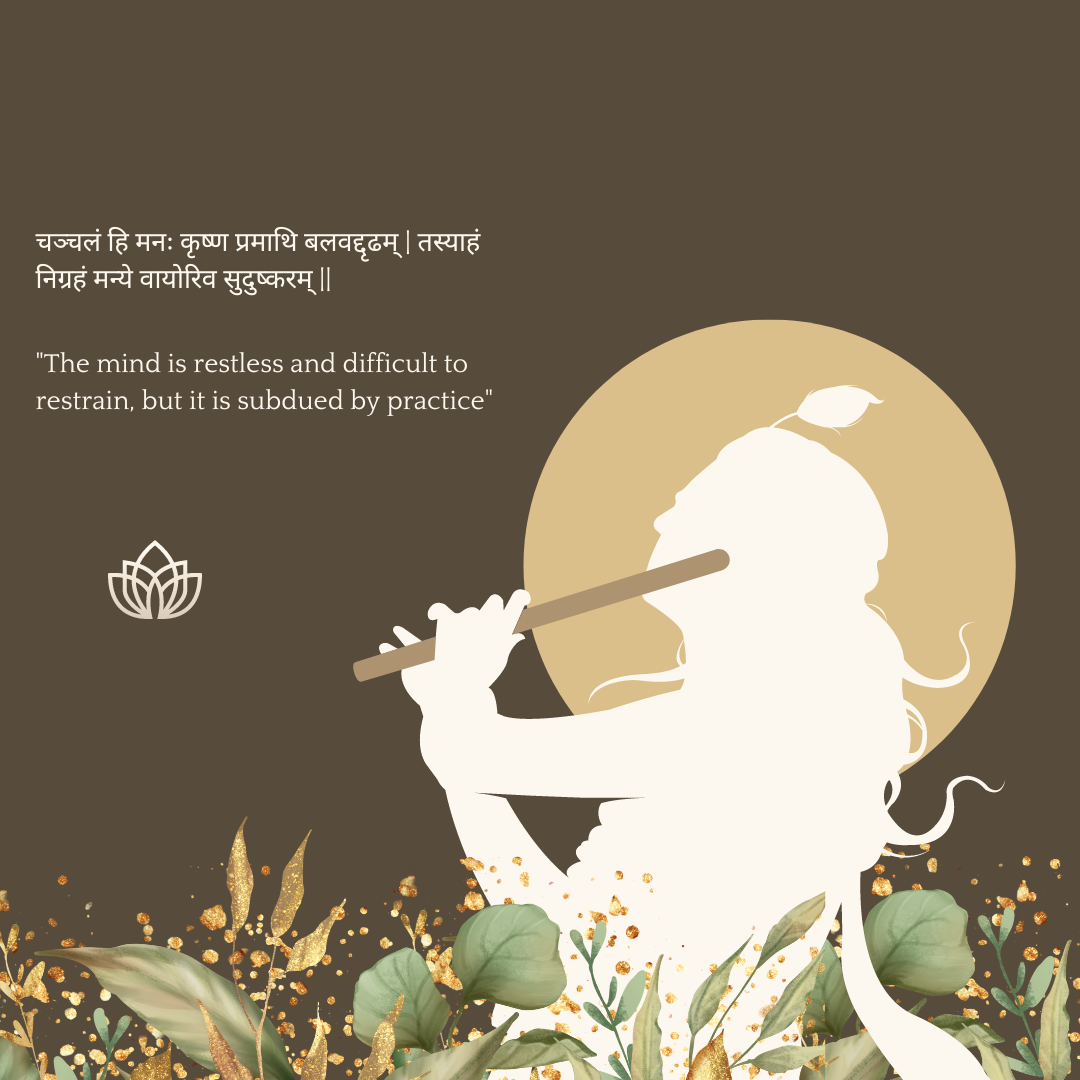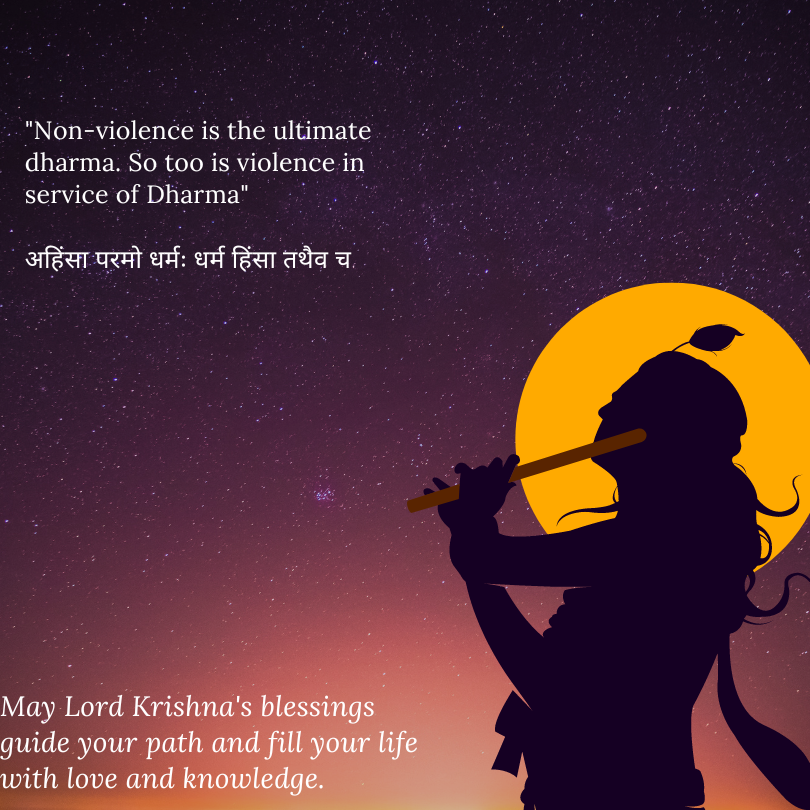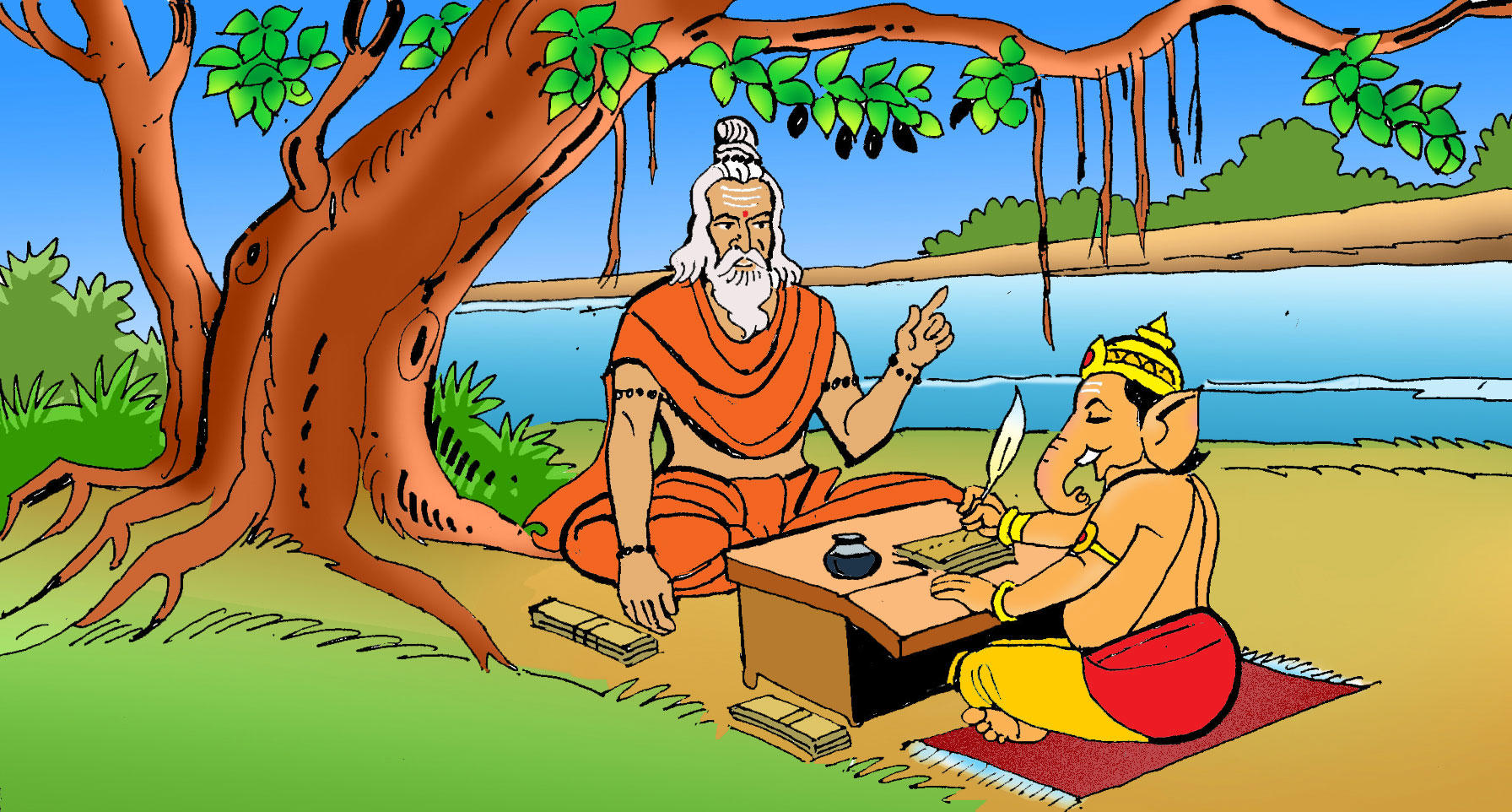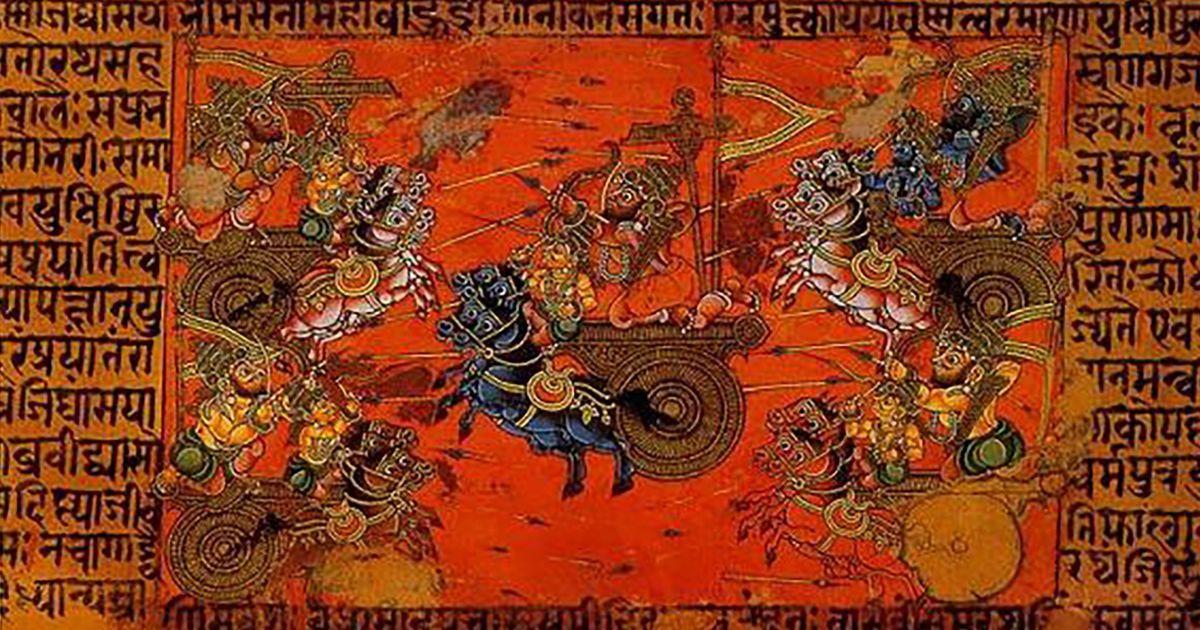The Mahabharata is a treasure trove of profound life lessons, and Mahabharata quotes (with English translations) offer deep insights on courage, duty, and destiny. Whether you're seeking mahabharata quotes in English or exploring mahabharat quotes, these carefully selected lines will uplift and inspire you. Let’s dive into powerful Mahabharatham quotes that resonate with today’s challenges!
सखा चेति ममं त्वं त्वं प्रियः सखायते। - You are dear to me, O friend, and I will always guide you through the hardships of life.
Bhagavad Gita, 4.3
The Kuru dynasty in ancient India is the subject of the epic poem, Mahabharata, one of the two main Sanskrit epics of ancient India, together with the Ramayana. The Mahabharata is frequently referred to as the "fifth Veda" in Hinduism and is regarded as one of the greatest works of literature in history. The Mahabharata's central conflict is a civil war between the Pandavas and the Kauravas, two branches of the Kuru dynasty.
| Character | Role | Significance |
|---|---|---|
| Krishna | Incarnation of Lord Vishnu, friend, and guide to Arjuna | Central figure in the Mahabharata, delivers the Bhagavad Gita, emphasizing dharma (righteousness), karma (duty), and selfless action. Represents divine guidance. |
| Arjuna | Third Pandava, greatest warrior and archer | Protagonist who struggles with moral dilemmas, leading to the Bhagavad Gita. Represents human doubt and the pursuit of righteousness. Key to Pandavas' victory. |
| Yudhishthira | Eldest Pandava, heir to the throne of Hastinapura | Embodiment of truth, justice, and dharma. Faces moral conflicts, especially in the game of dice, which leads to the Pandavas' exile. |
| Bhima | Second Pandava, known for his strength | Symbol of power, loyalty, and courage. Plays a key role in the Kurukshetra War, defeating major Kaurava warriors. |
| Draupadi | Wife of the Pandavas, queen of Indraprastha | Symbol of honor, courage, and devotion. Her humiliation in the Kaurava court is a key turning point in the epic, leading to the Kurukshetra War. |
| Karna | Son of Kunti (half-brother to Pandavas), fights for the Kauravas | Tragic hero, loyal to Duryodhana. Represents the burden of fate, loyalty, and inner conflict. His death is one of the most emotional moments in the epic. |
| Duryodhana | Eldest Kaurava, main antagonist | Represents greed, jealousy, and ambition. His rivalry with the Pandavas leads to the Kurukshetra War. Symbolizes the destructive nature of unchecked power. |
| Bhishma | Grandfather to both Pandavas and Kauravas | Symbol of duty, loyalty, and sacrifice. Took a vow of celibacy and allegiance to the throne. His fall in battle marks a significant moment in the war. |
| Drona | Teacher to both Pandavas and Kauravas | Master of military arts, but his loyalty to the Kauravas and role in the war bring about his tragic end. Symbolizes wisdom corrupted by loyalty. |
| Shakuni | Uncle of the Kauravas, strategist behind the dice game | Represents deceit, manipulation, and cunning. His schemes against the Pandavas lead to the exile and eventual war. |
| Kunti | Mother of the Pandavas | Symbol of maternal sacrifice and wisdom. Her hidden knowledge of Karna’s birth is central to many of the epic's tensions. |
| Gandhari | Mother of the Kauravas | Symbol of blind loyalty and maternal grief. She remains a tragic figure, torn between dharma and her love for her sons. |
The Mahabharata is more than just a tale of battle and bloodshed. Themes like dharma (obligation and moral responsibility), karma (cause and effect), and the essence of reality are all touched upon in this intricate and multi-layered text, which also includes the Bhagavad Gita. Also included are lessons on leadership, family relations, and the human condition, as well as philosophical and spiritual concepts.
योगस्थः कुरु कर्माणि सङ्गं त्यक्त्वा धनञ्जय।
सिद्ध्यसिद्ध्योः समो भूत्वा समत्वं योग उच्यते।।
Be steadfast in yoga, O Arjuna. Perform your duty and abandon all attachments to success or failure. Such evenness of mind is called yoga.

Mahabharata Quotes In English
कर्मण्येवाधिकारस्ते मा फलेषु कदाचन।
You have the right to perform your prescribed duty, but you are not entitled to the fruits of your actions.
धर्मो रक्षति रक्षितः।
The righteous are protected by righteousness.
धर्म एव हतो हन्ति धर्मो रक्षति रक्षितः।
Dharma, when destroyed, destroys; Dharma, when protected, protects.
जो कर्म करना चाहते हैं, उसे अपने कर्तव्य में पायें।
Seek to find your duty in the actions you wish to perform
कर्मण्येव अधिकार ते, मा फलेषु कदाचन।
You have the right to perform your actions, but you are not entitled to the results.
Find out how to read, write, and speak with Hindi classes near me on Superprof.

तं विद्याद् दुःखसंयोगवियोगं योगसंज्ञितम्।
स निश्चयेन योक्तव्यो योगोऽनिर्विण्णचेतसा।।
Separation from suffering is yoga. This yoga should be practiced with resolve and with a steady, undiscouraged mind.
Shloka 6.23 (Chapter 6, Verse 23)
कामातुराणां न भयं न लज्जा।
Those who are driven by desire know neither fear nor shame.
(Mahabharata, Adi Parva, 3.43)
न तस्य प्रतिमां द्रष्टुम् अस्ति कश्चन।
No one can compare to a leader who upholds his duties with honesty and justice.
(Mahabharata, Sabha Parva, 25.12)
Life Lessons With Mahabharata Quotes
The Mahabharata is an incredibly long epic story. The epic's continued veneration is due to more than just its sublime poetry. Nearly all of us have grown up hearing stories of the Mahabharata that are still relevant today. The epic's pervasive, profoundly philosophical concepts can teach us much about the art of living. Here are a few key life lessons we can take away from the Mahabharata.
Duty and Selfless Action
कर्मण्येवाधिकारस्ते मा फलेषु कदाचन।कर्मफलहेतुर्भूर्मा ते सङ्गोऽस्त्वकर्मणि॥
You have a right to perform your prescribed duties, but you are not entitled to the fruits of your actions. Never consider yourself to be the cause of the results, nor be attached to inaction.
(Bhagavad Gita, 2.47)
Perform your duties without attachment to the results. Focus on your actions, not on the outcome.
Righteousness (Dharma) Above All
धर्मो रक्षति रक्षितः।
Dharma protects those who uphold it. (Mahabharata, Shanti Parva, 296.6)
Upholding dharma (righteousness) is paramount, even in the face of adversity.
Forgiveness and Compassion
क्षमा धर्मः सतां धर्मः क्षमा यज्ञश्च सत्पताम्।
क्षमा यज्ञेषु सर्वेषु क्षमा यज्ञः सनातनः॥
Forgiveness is the virtue of the virtuous, it is a great sacrifice. Forgiveness is as important as all sacred rituals. (Mahabharata, Vana Parva, 32.10)
Forgiveness is one of the greatest virtues and should be practiced even in difficult situations.
Friendship is an enduring bond
We all aspire to be like Krishna and Arjuna because of their relationship. The Pandavas survived the conflict thanks to Lord Krishna's wisdom and unwavering support.
Nobody will ever forget the famous dice scene where Draupadi's husbands bet her away to ruin and Krishna saved her. On the other hand, the friendship between Karna and Duryodhan is no less admirable.

Mahabharata Quotes About Life
There are innumerable lessons that one can take away from reading the Mahabharata. While most of us are familiar with the story of the epic, here are some of the best words of wisdom from the immortal poetry that truly bring out its essence.
यतो धर्मस्ततो जयः।
Where there is dharma (righteousness), there is victory.
(Mahabharata, Udyoga Parva, 43.6)
जातस्य हि ध्रुवो मृत्युर्ध्रुवं जन्म मृतस्य च।
तस्मादपरिहार्येऽर्थे न त्वं शोचितुमर्हसि॥
For one who is born, death is certain; and for one who dies, birth is certain. Therefore, you should not lament over the inevitable. (Bhagavad Gita, 2.27)
क्षमा धर्मः सतां धर्मः क्षमा यज्ञश्च सत्पताम्।
क्षमा यज्ञेषु सर्वेषु क्षमा यज्ञः सनातनः॥
Forgiveness is the virtue of the virtuous, it is a great sacrifice. Forgiveness is as important as all sacred rituals. (Mahabharata, Vana Parva, 32.10)

कालो न यातो वयमेव याताः।
Time never moves, it is we who move through time (Mahabharata, Udyoga Parva, 10.13)
न हि ज्ञानेन सदृशं पवित्रमिह विद्यते।
In this world, there is nothing as pure as knowledge. (Bhagavad Gita, 4.38)
न जातु कामः कामानामुपभोगेन शाम्यति।
हविषा कृष्णवर्त्मेव भूय एवाभिवर्धते॥
Desire never ends by fulfilling it, just as fire is never quenched by pouring ghee into it; it only grows stronger. (Mahabharata, Adi Parva, 84.12)
वर्तमानेन कालेन यथाऽकृतमुपलभ्यते।
As time passes, everyone reaps the consequences of their actions. (Mahabharata, Shanti Parva, 123.19)
सर्वं सहते धर्मः सर्वं धर्मात्प्रवर्तते।
Righteousness can endure everything, and everything emanates from righteousness.
(Mahabharata, Shanti Parva, 160.19)
The Mahabharata is the perfect book for both children and adults if you wish to learn a great deal about a variety of subjects by reading only one book.
Discover spoken Hindi classes online on Superprof and discover about the divine book of Mahabharata from native Hindi speakers.
According to Sage Vyasa, "Whatever is there in this world to be known regarding the various ways and goal of life is there in this book; and whatever is not here is nowhere to be found." This book benefits everyone who reads it, not only Indians or Hindus, as it provides a lot of useful information that will help the reader achieve success, happiness, and prosperity.
Summarise with AI:















